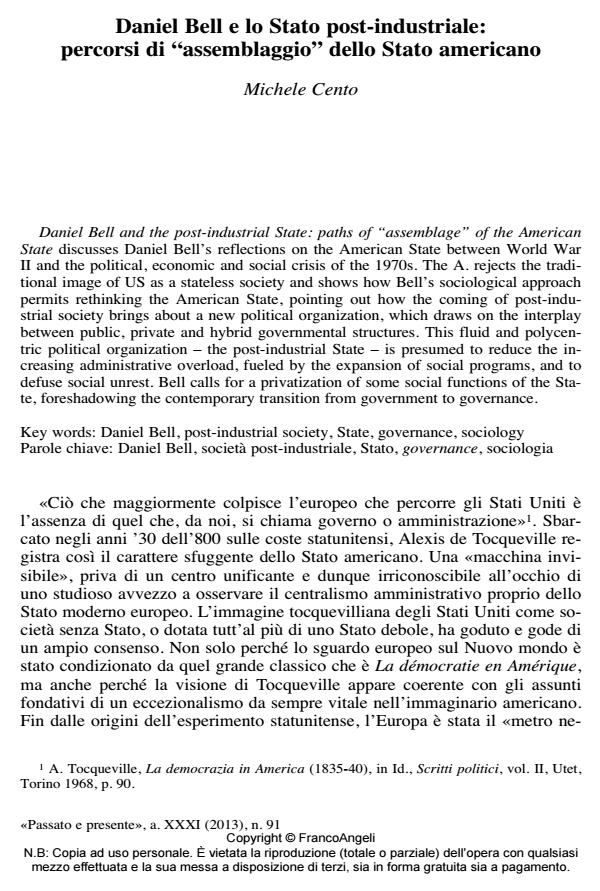Daniel Bell e lo Stato post-industriale: percorsi di "assemblaggio" dello Stato americano
Titolo Rivista PASSATO E PRESENTE
Autori/Curatori Michele Cento
Anno di pubblicazione 2014 Fascicolo 2014/91
Lingua Italiano Numero pagine 24 P. 103-126 Dimensione file 151 KB
DOI 10.3280/PASS2014-091006
Il DOI è il codice a barre della proprietà intellettuale: per saperne di più
clicca qui
Qui sotto puoi vedere in anteprima la prima pagina di questo articolo.
Se questo articolo ti interessa, lo puoi acquistare (e scaricare in formato pdf) seguendo le facili indicazioni per acquistare il download credit. Acquista Download Credits per scaricare questo Articolo in formato PDF

FrancoAngeli è membro della Publishers International Linking Association, Inc (PILA)associazione indipendente e non profit per facilitare (attraverso i servizi tecnologici implementati da CrossRef.org) l’accesso degli studiosi ai contenuti digitali nelle pubblicazioni professionali e scientifiche
Discusses Daniel Bell’s reflections on the American State between World War II and the political, economic and social crisis of the 1970s. The A. rejects the traditional image of US as a stateless society and shows how Bell’s sociological approach permits rethinking the American State, pointing out how the coming of post-industrial society brings about a new political organization, which draws on the interplay between public, private and hybrid governmental structures. This fluid and polycentric political organization - the post-industrial State - is presumed to reduce the increasing administrative overload, fueled by the expansion of social programs, and to defuse social unrest. Bell calls for a privatization of some social functions of the State, foreshadowing the contemporary transition from government to governance.
Parole chiave:Daniel Bell, società post-industriale, Stato, governance, sociologia
Michele Cento, Daniel Bell e lo Stato post-industriale: percorsi di "assemblaggio" dello Stato americano in "PASSATO E PRESENTE" 91/2014, pp 103-126, DOI: 10.3280/PASS2014-091006